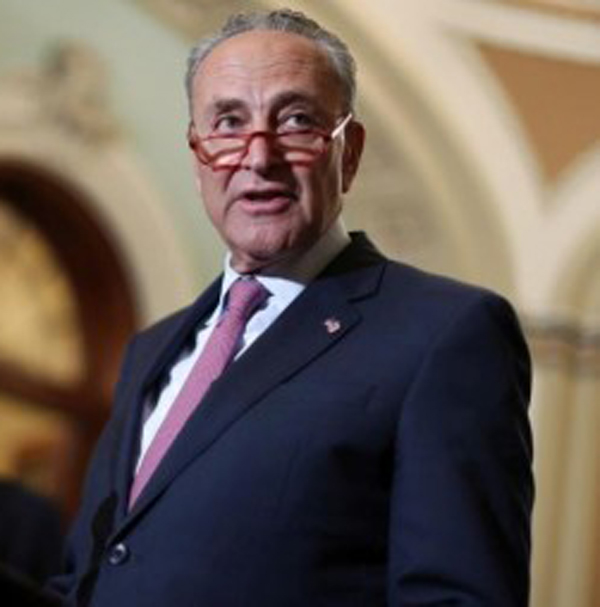WASHINGTON, (Reuters) – A bipartisan group of 10 U.S. senators said yesterday it had reached agreement on a framework for a proposed infrastructure spending bill that would not include any tax increases.
The group of five Republicans and five Democrats gave no details, but a source familiar with the deal said it would cost $974 billion over five years and $1.2 trillion over eight years, and includes $579 billion in new spending.
The senators said they were discussing their approach with their colleagues and the White House, and they were optimistic about getting broad support.
“Our group … has worked in good faith and reached a bipartisan agreement on a realistic, compromise framework to modernize our nation’s infrastructure and energy technologies,” the lawmakers said in a statement. “This investment would be fully paid for and not include tax increases.” The agreement proposes using unspent COVID-19 funds and raising revenue to fund infrastructure investments by indexing the federal tax on gasoline to account for inflation, a congressional source familiar with the negotiations said.
The White House said it would work with the senators to address questions about policy and funding. A person familiar with President Joe Biden’s thinking said the White House opposed any effort to index gasoline taxes to inflation.
Democratic U.S. Senate Majority Leader Chuck Schumer said earlier yesterday he was open to a bipartisan infrastructure bill but wanted to see it in writing. He added he might also push for a follow-up package that had only his party’s support.
Biden, a Democrat, has been pushing for a sweeping $1.7 trillion package in Congress to revamp roads and bridges and tackle such other issues as education and home healthcare.
His plan has faced Republican opposition and Biden earlier this week rejected a far smaller counter-proposal put forward by Republican Senator Shelley Moore Capito.
That left room for the group of 10 moderate senators from the two parties to pitch a new idea designed to generate enough support to pass through the 100-seat Senate with the 60 votes necessary for most bills.
Senate Republican Leader Mitch McConnell also told the group he was open to their ideas, Republicans said.
Schumer said work was still progressing on two tracks – one a bipartisan infrastructure bill and the other a measure that if brought to the floor, could pass with only Democratic votes through a maneuver called reconciliation that bypasses the rule requiring 60 votes for bills to advance.
MCCONNELL IN ‘LISTENING MODE’
The senators in the group that reached the agreement are Democrats Joe Manchin, Jeanne Shaheen, Kyrsten Sinema, Jon Tester and Mark Warner, and Republicans Bill Cassidy, Susan Collins, Lisa Murkowski, Rob Portman and Mitt Romney.
Collins told Reuters the group met with McConnell and he was in a “listening mode,” but did not commit one way or the other.
Romney and Tester spoke of a provision that might raise revenue by having the Internal Revenue Service go after tax cheats.
At the same time, infrastructure-related transportation bills moved forward at the congressional committee level.
A House of Representatives panel on Thursday ended more than 17 hours of debate with a 38-26 vote authorizing $547 billion in additional spending for surface transportation.
The Senate Commerce Committee was also set to unveil a $78 billion surface transportation bill, sources said.
Republicans say Biden’s infrastructure plan puts too much money into addressing climate change and building up some social programs. They also oppose his proposal to raise taxes on U.S. corporations and the wealthy to pay for it.
The bipartisan push has come under fire from some Democrats who say Republicans are narrowly focused on physical infrastructure and that Biden should push ahead with his own plans without watering it down in negotiations.

